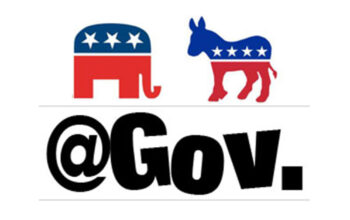Meredith Luchs, Reporter
@mluchscourant
Writing this article, I feel I’ve put myself in a dangerous position. I can already hear the arguments about capitalism and how important it is that we are constantly improving in response to other’s improvements. I can picture the murmurs about coddling America’s youth and not introducing them to the “harsh reality” of the win-lose world we live in. Perhaps you’re anticipating a whiny soliloquy of a loser arguing against competition in an attempt to regain some dignity, but competition exists on macro and micro scales; beyond the competition of businesses and corporations, individuals “moving up in the world” and “being successful”, or even awards, reputation, and status, there is the competition of daily life that is tearing NCHS students apart.
I’d like you to consider how many times in a day you find yourself “against” something else. Maybe when you walk into school in the morning, you find yourself comparing your outfit to someone else. As you catch up with your friends, you find yours elf trying to one-up your friends’ account of how they were up until 2.a.m. studying with your story about pulling an all-nighter. Once you get to class, you’ll probably have some type of assessment and if you don’t do well you may find yourself telling your parents that “no one did well”, (though you may still feel compelled to embellish your grade when that-one-friend-we-all-have-who-wants-to-know-everyones’-grades asks you). In between classes you scroll through Instagram and look at how much fun it seems like everyone else is having and internally wonder if they’re having more fun than you. During a free, you inevitably overhear some gossip and likely trash-talking from the surrounding tables (seriously though the entire library has odd acoustics that is not a smart place to be recounting the tale of a friend’s crazy weekend), and, as disgusted as you want to be by the low things people say about each other, you know you’ve probably sat along and contributed to a gossip session at one point too.
elf trying to one-up your friends’ account of how they were up until 2.a.m. studying with your story about pulling an all-nighter. Once you get to class, you’ll probably have some type of assessment and if you don’t do well you may find yourself telling your parents that “no one did well”, (though you may still feel compelled to embellish your grade when that-one-friend-we-all-have-who-wants-to-know-everyones’-grades asks you). In between classes you scroll through Instagram and look at how much fun it seems like everyone else is having and internally wonder if they’re having more fun than you. During a free, you inevitably overhear some gossip and likely trash-talking from the surrounding tables (seriously though the entire library has odd acoustics that is not a smart place to be recounting the tale of a friend’s crazy weekend), and, as disgusted as you want to be by the low things people say about each other, you know you’ve probably sat along and contributed to a gossip session at one point too.
Without even examining about sports and clubs, there is an overwhelming amount of competition in a day. But, this isn’t the only way to live. In fact, some studies suggest that competition is a learned behavior. While in America competition is not only categorized as natural and unavoidable, but laudable, a study conducted by renowned anthropologist Margaret Mead, Cooperation and Competition among Primitive Peoples, highlighted several societies that valued cooperation over competition. One society Mead monitored was the Zuni Indians of Arizona. The Zuni hold a ritual foot race, the winner of which is not only never publically acknowledged, but discouraged from competing if they won the race multiples times. The reasoning behind this is based in the belief that the footrace should be more about the fun of running than rooting tribe members against one another, and that such a combative atmosphere would hurt the collective psyche of the tribe.
Look a little further, and we find that not only does competition hurt a community, but it has adverse effects to individuals. The problem with competition is that we become so obsessed with objective evaluation, that we forget how to value ourselves any other way. When we reach this point, there is a willingness to compromise morals, to circumvent rules or tear others down in order to surpass them. Psychologists have proved this time and time again; if all you want to do is win, you will find the optimum conditions to win. In a 1977 study published in the Journal of Personality Assessment, Richard Ryckman, a psychologist from the University of Maine, split undergraduates into two groups- those who self identified as valuing “winning” and “the end goal” over enjoying the process, and those for whom the later and former are flipped. While both groups reached high measurements of achievement and striving for an exciting, challenging life, those valuing the win indicated that they valued “power and control over others.” Furthermore, their free-responses demonstrated a blatant lack of care and respect for others.
Subsequently, we begin competing in a way that does not encourage others to improve, but rather encourages us to become better at destroying others. We become destroyers rather than builders, we learn to crush others before building ourselves up.
Even in the daily life of the NCHS student- I see this. We make derogatory comments on each other’s fashion and style, we point out each other’s awkward moments, we try to get better grades than one another, we try to prove we have more interesting lives than one another, we compare our athleticism, and attack each other’s goals.
Frankly, it’s a sad and unsustainable way to go about our lives, and more importantly, it’s not the only way. Stop looking to compliments, trophies, awards, “likes”, % muscle gained, grades, fake friends and reputations gained for validation. In the wise words of Morrie Schwartz, the old man loved by wine-mom bookclubs country-wide, “So many people walk around with a meaningless life. They seem half-asleep, even when they’re busy doing things they think are important. This is because they’re chasing the wrong things. The way you get meaning into your life is to devote yourself to loving others, devote yourself to your community around you, and devote yourself to creating something that gives you purpose and meaning.”



